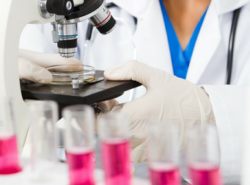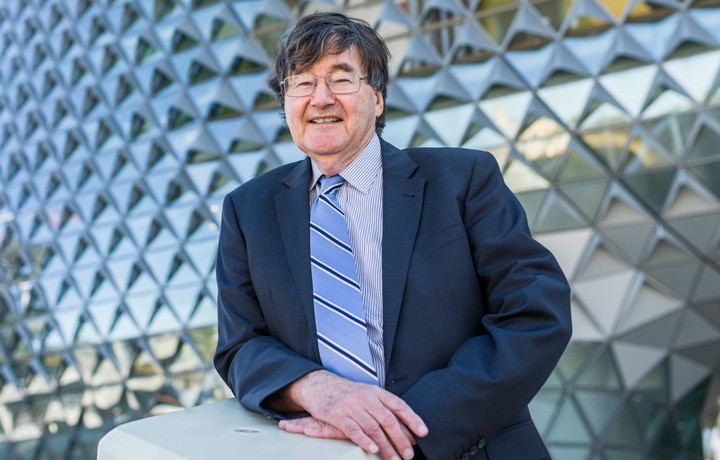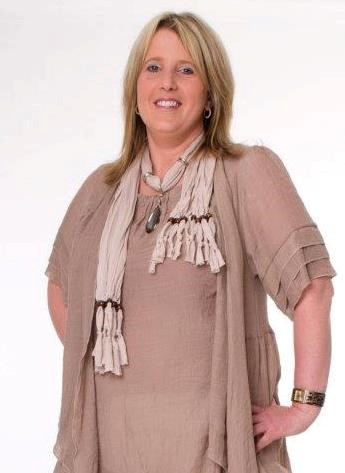
DEVELOPING A NATIONAL BREAST CANCER DATABASE FOR RESEARCH AND SERVICE DELIVERY
We can only complete our journey to Zero Deaths from breast cancer by funding the very best and most innovative breast cancer research. This must assess the reasons that nine percent of people diagnosed with the disease still lose their lives to it within five years, and work on changing that. Here are just a couple of the ways we intend to do that. Currently, there is no central dataset between medical facilities and clinics that link patient information, tumour characteristics and outcomes for breast cancer. NBCF has commissioned Professor David Roder, Chair of Cancer Epidemiology and Population Health at the University of Adelaide to conduct a research project to better understand and predict who makes up that nine percent. To achieve this, Professor Roder will bring together information on breast cancer care and outcomes which currently sits in many different places.
Questions that this project will address include:
- How to ensure everyone receives the best breast cancer care that is tailored to their needs?
- If there are gaps in healthcare service and delivery, how can they be found and what health system changes are needed to fix them?
- How to ensure that there is equality and that the whole community receives the highest quality of care?
These critical questions and many more could be answered through the use of this first-of-its kind database linking e-health information from hospitals, cancer clinics, pathology laboratories and other sources of data. With all the information currently sitting in different places, the ability to see patterns and insights into breast cancer care and outcomes has been limited. NBCF hopes that by linking this information, we will be able to better understand which women have worse health outcomes from breast cancer, the detailed reasons for the disparity, and what that means for all women affected.
NBCF will use the information generated by this project to make data-driven decisions in setting priority areas for breast cancer research funding, to ensure that our research investment is targeting zero deaths from breast cancer. Further, this project will also provide the evidence for NBCF and the community to advocate for changes in health policy and service delivery that could stop deaths from breast cancer – getting us to our goal of Zero Deaths from breast cancer.
“Through this partnership with NBCF, we hope to speed up the translation of research evidence into health practice to save and improve the lives of breast cancer patients in Australia.” Professor David Roder, NBCF-funded researcher

NBCF’S VISION OF ZERO DEATHS FROM BREAST CANCER
“The best way we can achieve Zero Deaths from breast cancer is working together as a team. We’re going to need to get better at diagnosing early, better interaction between clinicians and researchers and we’re going to need better support for patients.” Associate Professor Andrew Burgess, NBCF-funded researcher
WHY IMPROVED HEALTH SERVICE IS SO IMPORTANT FOR WOMEN LIKE TANIA
“Living in a regional area meant that all tests and treatments – with exception of the surgery – had to be done in Adelaide. After one particularly unpleasant bone test, I’m not sure how I managed to do the long drive home. I know that the car got left in the driveway, I crawled into bed and then totally collapsed. Never want that test ever again!” Tania, diagnosed 2005

MORE ABOUT TANIA
Tania was a 32-year-old mother of three when she was diagnosed with breast cancer. At the time, she and her husband owned and operated a dairy farm in a rural community in South Australia. She was diagnosed with Stage 2A breast cancer after finding a lump in her breast. Tania had surgery to remove the lump and the lymph nodes from underneath her right arm. Following the procedure, Tania had chemotherapy, radiotherapy, hormone treatment, and eventually, she had her ovaries removed.
Because of Tania’s remote location, she had to endure a one-and-a-half hour drive to Adelaide for much of her treatment. Thankfully, her surgeon registered with her local hospital so she could be operated on near her home.
“I was lucky enough to get a really great private surgeon who was registered with my local hospital and fitted around me,” said Tania.
She continues to raise awareness of the importance of breast cancer research and is passionate about ensuring everyone in Australia – especially those in remote communities – have access to the best care and treatment needed.
In addition to Tania’s role as a community ambassador with NBCF, she also is an advocate for IMPACT – Improving Participation and Advocacy for Clinical Trials – an initiative of the Australia and New Zealand Breast Cancer Trials Group.
Further Reading
View all research
